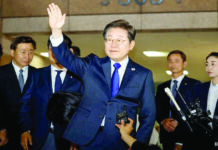NEW DELHI: In a development that potentially impacts India’s bilateral investment obligations, the Commercial Court of the High Court of Justice in London has revived a $273 million arbitration claim filed by the Ras Al Khaimah Investment Authority (RAKIA)—the sovereign investment arm of the UAE emirate of Ras Al Khaimah—against the Government of India.
The June 20 ruling overturns a 2022 international arbitration tribunal decision that had dismissed the case on jurisdictional grounds.
The dispute stems from a cancelled bauxite mining and aluminium project in Andhra Pradesh, in which RAKIA had invested over $42 million through a joint venture company, ANRAK Aluminium Ltd, in partnership with India’s Penna Group. The investment followed a 2007 Memorandum of Understanding between the governments of Andhra Pradesh and Ras Al Khaimah.
While the project secured environmental clearances, forest approvals remained pending. In November 2015, the Andhra Pradesh government moved to operationalise the bauxite supply plan. However, on December 22, 2015, then Chief Minister N. Chandrababu Naidu announced in the state Assembly that the project would be cancelled—a decision later formalised through a government order in April 2016.
In December 2016, RAKIA filed for arbitration under the India–UAE Bilateral Investment Treaty (BIT), signed in 2013, alleging that the cancellation violated investment protections guaranteed under the treaty.
The damages claimed by RAKIA go well beyond the original $42 million investment that it reportedly made. In its arbitration filing, RAKIA cited multiple grounds to justify its $273 million claim, including the loss of expected profits, loss of business opportunity, costs incurred on financing and infrastructure, as well as sunk costs. It also invoked the breach of the fair and equitable treatment clause under the India–UAE Bilateral Investment Treaty, arguing that the abrupt cancellation of the project by the Andhra Pradesh government amounted to a violation of treaty protections.
In May 2022, a UNCITRAL tribunal chaired by Lord Hoffmann, with co-arbitrators Justice Chandramauli Kumar Prasad and J. William Rowley QC, ruled that it lacked jurisdiction to hear the case. The tribunal concluded that the state’s actions were directed at ANRAK Aluminium Ltd and did not “directly” impact RAKIA’s investment.
However, Justice Robin Knowles of the London Commercial Court has now reversed that conclusion. In his June 20 ruling, he held that RAKIA’s investment—which included capital contributions, shareholding, and pledged shares—was directly affected by binding executive action from the Andhra Pradesh government. The court determined that these elements brought the investment within the scope of protections under the BIT.
Importantly, the court did not rule on the merits of RAKIA’s claim, but only on the tribunal’s jurisdiction.
The matter will now return to arbitration, where India must defend the claim on substantive grounds.
This revival comes in the backdrop of multiple high-stakes international arbitration cases against India. These include a $1.2 billion award to Cairn Energy over retrospective tax measures, a $1.2 billion award in the Devas-Antrix dispute, the White Industries case involving judicial delays, a favourable ruling for Vodafone, and a $770 million claim by Nissan.
Many of these disputes were filed under older-generation BITs, signed before India overhauled its model treaty framework in 2016. Since then, India has terminated or allowed more than 50 treaties to lapse and adopted a new Model BIT that curtails investor rights and bars retrospective claims. Nonetheless, treaties like the India–UAE BIT (2013) remain operational under sunset clauses, leaving India exposed to legacy claims.
The RAKIA case is diplomatically sensitive, not just because it involves a sovereign investor from a key strategic partner, but also because it highlights the liability the Union government can incur from state-level decisions.
Significantly, while the investment was initiated under the Congress-led government of Y.S. Rajasekhara Reddy, the cancellation occurred during the tenure of the TDP government led by N. Chandrababu Naidu—whose party is now a key ally in the ruling NDA at both the Centre and in Andhra Pradesh.








